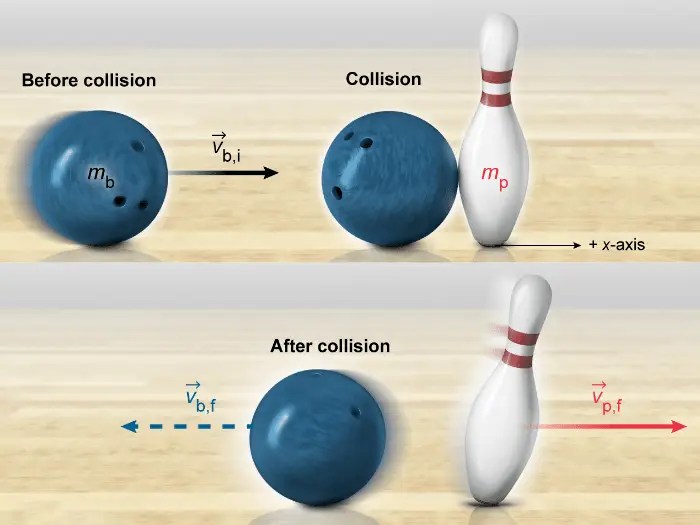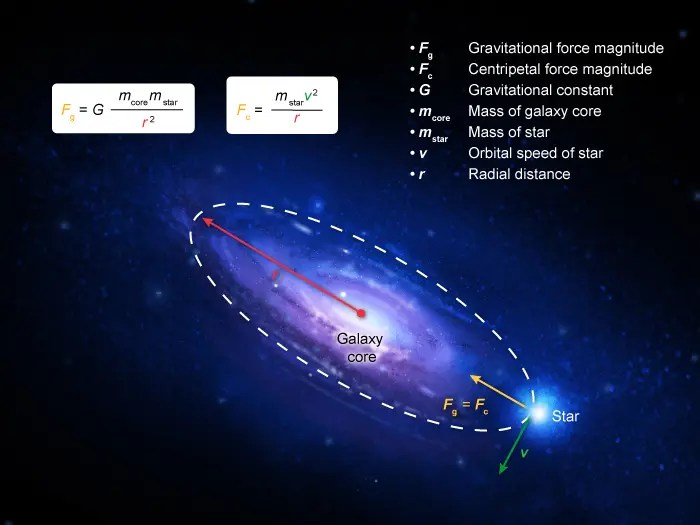The College Board® offers three main AP® Physics courses. The first, foundational course is AP Physics 1, which aims to build a strong understanding of elementary principles in physics. This course is equivalent to a first-semester introductory physics course in college.
In this article, we'll take a look at how AP Physics 1 exam scores are calculated. We'll also share some statistical information on AP Physics 1 score distributions from previous years so you can assess how students have been performing over time.
How Is the AP Physics 1 Exam Scored?
The AP Physics 1 exam has two main sections. Section I includes multiple-choice questions, while Section II has free-response questions. Each section accounts for 50% of the total points you can score on the exam.
Here's a quick look at the exam format and the scoring method.
| Sections | Question Type | Number of Questions | Exam Weight | Grading |
|---|---|---|---|---|
| Section I - A | Single-select multiple-choice questions | 45 Questions | 50% | Computer graded |
| Section I - B | Multiple-select multiple-choice questions | 5 Questions | ||
| Section II | Free-response questions | 5 | 50% | Graded manually by AP Readers |
In section I, you will be given 45 questions containing only 1 correct answer. These are the single-select multiple-choice questions. You will also be given multiple-select multiple choice questions; these are 5 questions that have 2 correct answers per question. For the single-select MCQs, you will find questions as sets as well as individual questions. However, the multiple-select MCQs will be discrete questions only.
Section II of the AP Physics 1 exam has three 7-point free-response questions and two 12-point free-response questions.
The AP Physics 1 exam is designed in such a way that each section accounts for 50% of the overall exam score. Here’s how that works:
- The total number of points you scored in each section is calculated based on the number of questions you correctly answered.
- This raw score is then translated into a weighted, combined score based on a predetermined conversion formula.
- This weighted combination score is correlated to the AP final score scale. You can get a final AP Physics 1 score of 1 to 5.
You will not be able to see your weighted combination score on the score report or even the individual score for each section. You will only be able to see your final scaled score, which is between 1 and 5.
Self-studying for the AP Physics exam?
We make really hard stuff easy to understand. Study smarter with UWorld.



Start Free Trial
AP Physics 1 Scoring Table
As we mentioned, your final AP Physics 1 exam score will be on a 5-point scale and will be a representation the total points you score on the exam. On the scale, 1 is the lowest score and 5 is the highest score possible. It is based on this final score that the college admissions office will decide your eligibility for free credits and placement.
This 5-point scale, used to identify a student's final score, was developed after a lot of research and is updated every year by the College Board. The main aim of AP Physics 1 is to teach students college-level foundational physics concepts in high school. Hence, each score on the table equates to a possible grade a student could get on the same course in college.
Let's take a look at the AP Physics 1 final score table and their relative college grade equivalents.
| AP Physics 1 Final Score | Equivalent College Grade |
|---|---|
| 5 | A+ or A |
| 4 | A-, B+, or B |
| 3 | B-, C+, or C |
| 2 | — |
| 1 | — |
As you can see, scores below 3 do not equate to a college grade. Currently, most colleges require students to receive a score of 3 or higher to qualify for free credit. However, some colleges only accept a score of 4 or higher, or even 5. Be sure to check with the colleges you wish to apply to about their individual requirements before submitting your scores.
To help you understand better, we've included a table that shows how college admissions boards decide whether a student qualifies for free credit or not based on their final score based on the College Board’s recommendations.
| AP Physics 1 Exam Score | Qualification |
|---|---|
| 5 | Extremely well qualified |
| 4 | Very well qualified |
| 3 | Qualified |
| 2 | Possibly qualified |
| 1 | No recommendation |
AP Physics 1 Score Distributions
AP Physics 1 is the stepping stone to AP Physics 2 or AP Physics C: Mechanics, and it can also earn a student freecredits during their first semester at college. In 2022 alone, around 144,526 students took the AP Physics 1 exam.Out of this total, over 62,500 students scored a final score of 3 or above.
Let’s take a look at the AP Physics 1 score distribution for the year 2022:
| AP Physics 1 Score | No. of Students | % of Students |
|---|---|---|
| 5 | 11,488 | 7.9 % |
| 4 | 24,596 | 17.0 % |
| 3 | 26,451 | 18.3 % |
| 2 | 39,141 | 27.1 % |
| 1 | 42,850 | 29.6 % |
Unlike the other AP science subjects, where over 50% of students scored 3 and above, AP Physics 1 saw only43.3% of students scoring 3 and above in 2022. However, don't be discouraged. With the right resources,you can get through the course and the exam exceptionally well. Try some of UWorld's free online AP Physics 1 practicetests to help you review for the exam.
“Only one student got a perfect 5 on the AP Physics 1 exam in 2022.This means that they got every multiple-choice question correct and got perfect scores on each of theirfree-response questions!”
Students did slightly better in 2020 and 2019 compared to students in 2021. There could be many reasons for this.Students took the exam digitally for the first time in 2021, and it could also be that some questions were slightlymore difficult. However, as we can see, the overall success rate bounced back in 2022.
Here’s a comparison of AP Physics 1 score distributions from 2021, 2020, and 2019.
| Final Score | % of Students in 2021 Exam | % of Students in 2020 Exam | % of Students in 2019 Exam |
|---|---|---|---|
| 5 | 6.9% | 8.8% | 6.7% |
| 4 | 16.3% | 17.9% | 18.2% |
| 3 | 18.9% | 24.8% | 20.5% |
| 2 | 26.4% | 26.5% | 28.7% |
| 1 | 31.4% | 21.9% | 25.9% |
Since the second section of the exam requires written answers, has varying total points for each question, and isgraded by AP Readers, it can be a little more complex to score. So let's take a look at how students did in thefree-response section of the exam in 2021.
| Question Number | Mean | Total Possible Points |
|---|---|---|
| 1 | 1.59 | 7 |
| 2 | 6.64 | 12 |
| 3 | 4.30 | 12 |
| 4 | 2.67 | 7 |
| 5 | 3.09 | 7 |
AP Physics 1 Minimum Score Requirement for College Credit
As we mentioned earlier, colleges require a minimum score of 3 to qualify for free credit and placement. However, every college is different, and some may have a higher AP Physics 1 minimum score requirement than others. So, it's always good to check in with the colleges you're applying to to see what their requirements are.
If you're gunning for those free credits, here's a list of some of the top colleges and their minimum AP Physics 1 score requirements.
| University | AP Physics 1 Score Requirement |
|---|---|
| Princeton University, Princeton, NJ | 5 |
| Brown University, Providence, RI | 5 |
| Arizona State University, Tempe, AZ | 4 |
| American University, Washington, DC | 4 |
| Berkeley City College, Berkeley, CA | 3 |
| Colorado State University, Fort Collins, CO | 3 |
AP Physics is hard, but we can help.
Study on your schedule, at your pace, and at an affordable price.
Start Free Trial

Frequently Asked Questions
When do the AP Physics 1 exam scores come out?
The AP Physics 1 exam scores will be released in July every year. You can check your scores online through your College Board account.
What is a good AP Physics 1 score?
Getting a final score of between 3 and 5 is considered a good AP Physics 1 score. Scoring a 5 is the absolute best score.
What is the average AP Physics 1 score?
The average AP Physics 1 score in the year 2022 was 2.47, and for 2021 it was 2.41, suggesting that it is a very difficult exam to score a 5.
Why are AP Physics 2 scores curved?
AP Physics 1 scores are curved for two main reasons:
- To maintain scoring consistency across the years.
- To correlate the final exam score to an equivalent college grade with accuracy and uniformity.
How many people get a perfect score of 5 on the AP Physics 1 exam?
A perfect score or perfect 5 is when a student gets all answers on both sections of the exam correct. In the year 2022, only one student got a perfect score of 5 on the AP Physics 1 exam. For the 2021 AP exams, only four students scored a perfect 5.
What score do I need to get to pass AP Physics 1?
You will need a score of 3 or higher to pass the exam and qualify for free college credit.
Read More About the AP Physics Exam
About AP Physics 1 Exam
Want to get a better sense of the AP Physics 1 exam? Here’s a comprehensive article about AP Physics 1 that explains everything about the exam, prerequisites, and more!
AP Physics 1 Exam Format
Confused about the AP Physics 1 Exam Format? Visit our page for comprehensive AP Physics 1 format information, including exam structure and question types.
AP Physics 1 Exam Study Guide
Getting into elite schools is not a hard task anymore. See what our experts say about scoring 5 on the AP Physics 1 and all the resources you need to reach your target.
Free AP Physics 1 Practice Questions
Be test-ready with UWorld! Try this free mock test with AP Physics 1 practice questions and see why our question explanations are the gold standard of exam preparation!